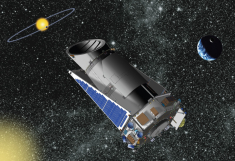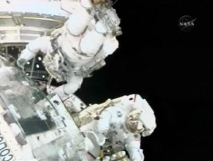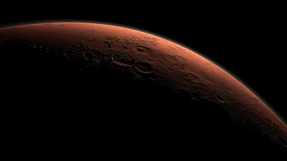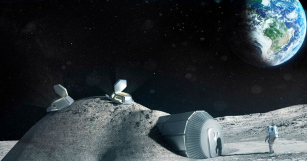In what could be a pivotal step towards the study of whether life existed on Mars, space scientists from the National Aeronautics and Space Administration (NASA) recently made an unexpected discovery on the surface of the Red Planet: glass deposits.
The space agency announced on Monday that its Mars Reconnaissance Orbiter —which has been circling the planet since 2006 — detected impact glass matter, which could have been the product of the crashing of a meteorite on Mars many years ago.
Jim Green, director of the NASA's planetary science division at the agency's headquarters in Washington, D.C., said these glass deposits seem to be "relatively common impact features on Mars."
"These areas could be targets for future exploration as our robotic scientific explorers pave the way on the journey to Mars with humans in the 2030s," Green said in a written statement.
Researchers said this new discovery will change the way they approach their mission to find out if life indeed once existed on Mars.
"In the past the search for life focused on 'following the water,' and looking for sedimentary rocks formed in lake or river environments," Brown University doctoral student Kevin Cannon, one of the researchers who discovered glass deposits, said in an interview.
Dr. Seth Shostak, a senior astronomer at the SETI Institute in California, said NASA can now focus on these glass deposits, since life forms could have been trapped there when an asteroid or comet once hit Mars' surface.
"Billions of years ago, when microbial life may have littered the Red Planet, the occasional meteor impact could accidentally encase bits and pieces of this ancient biology in glassy packaging," Shostak said.
"So if you're going to look for life that's been gone for billions of years, this suggests that a promising way to do so is to simply find it lying around, conveniently bottled," he added.

















